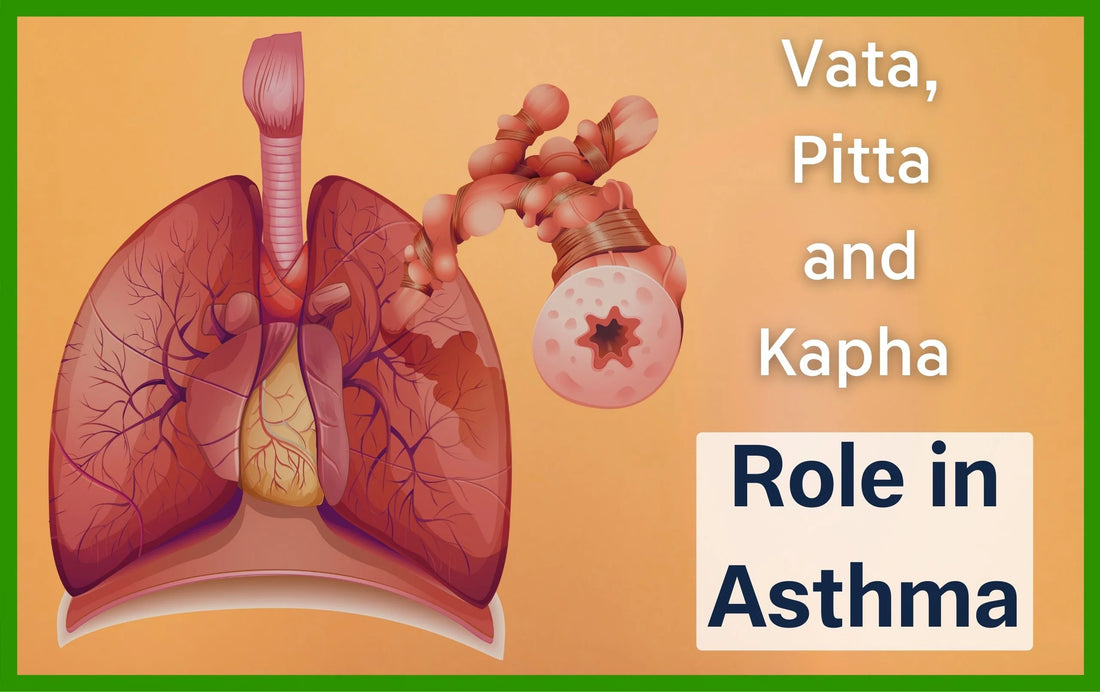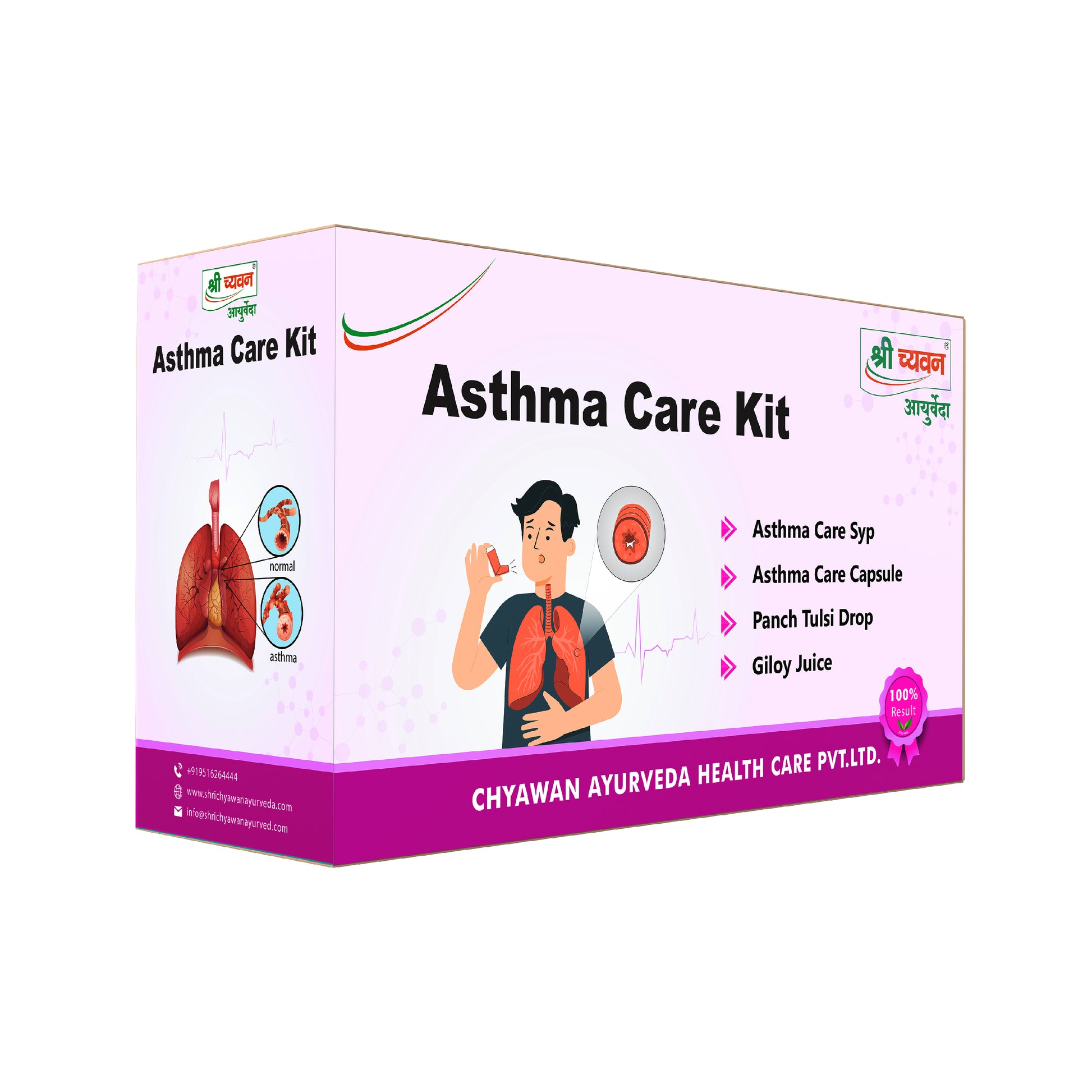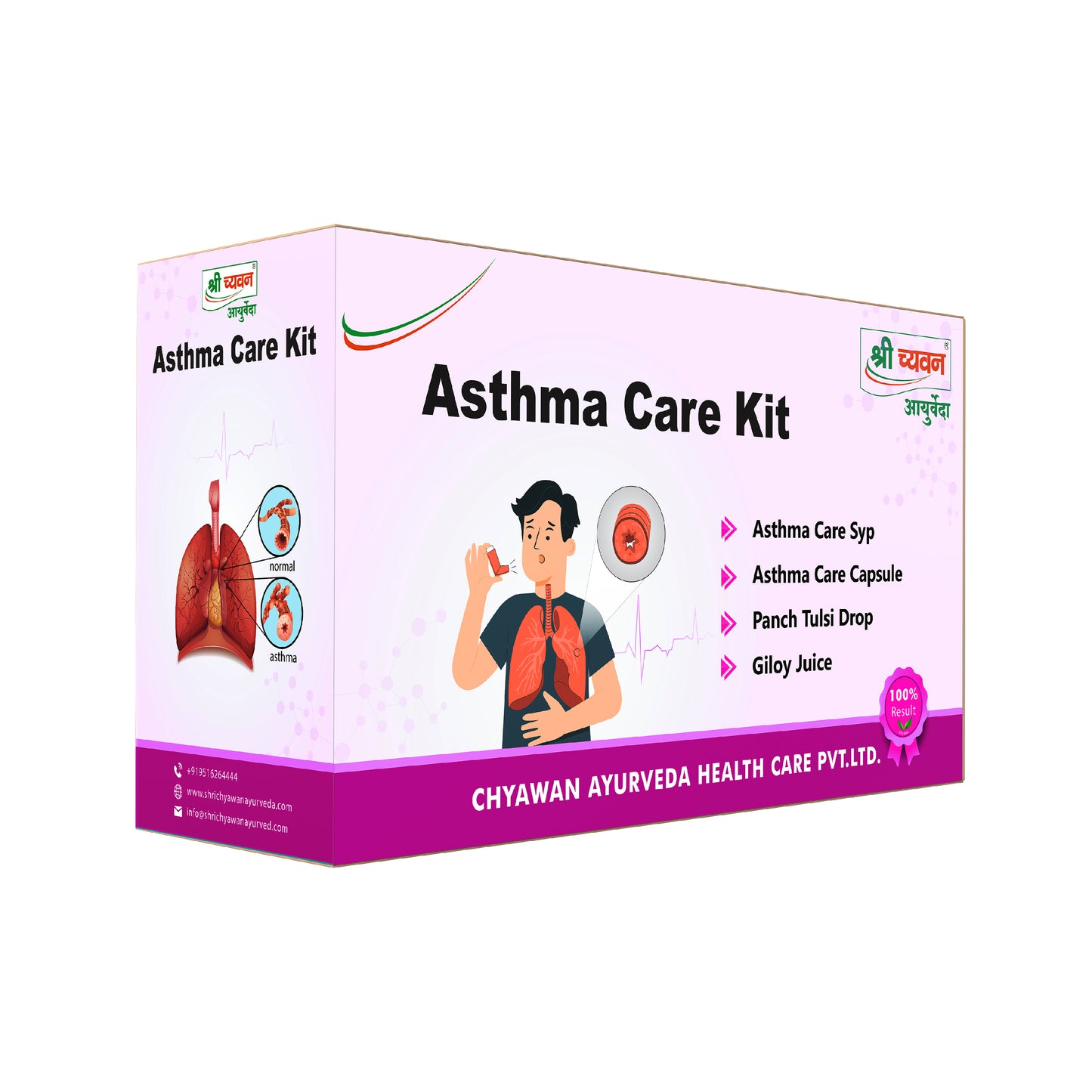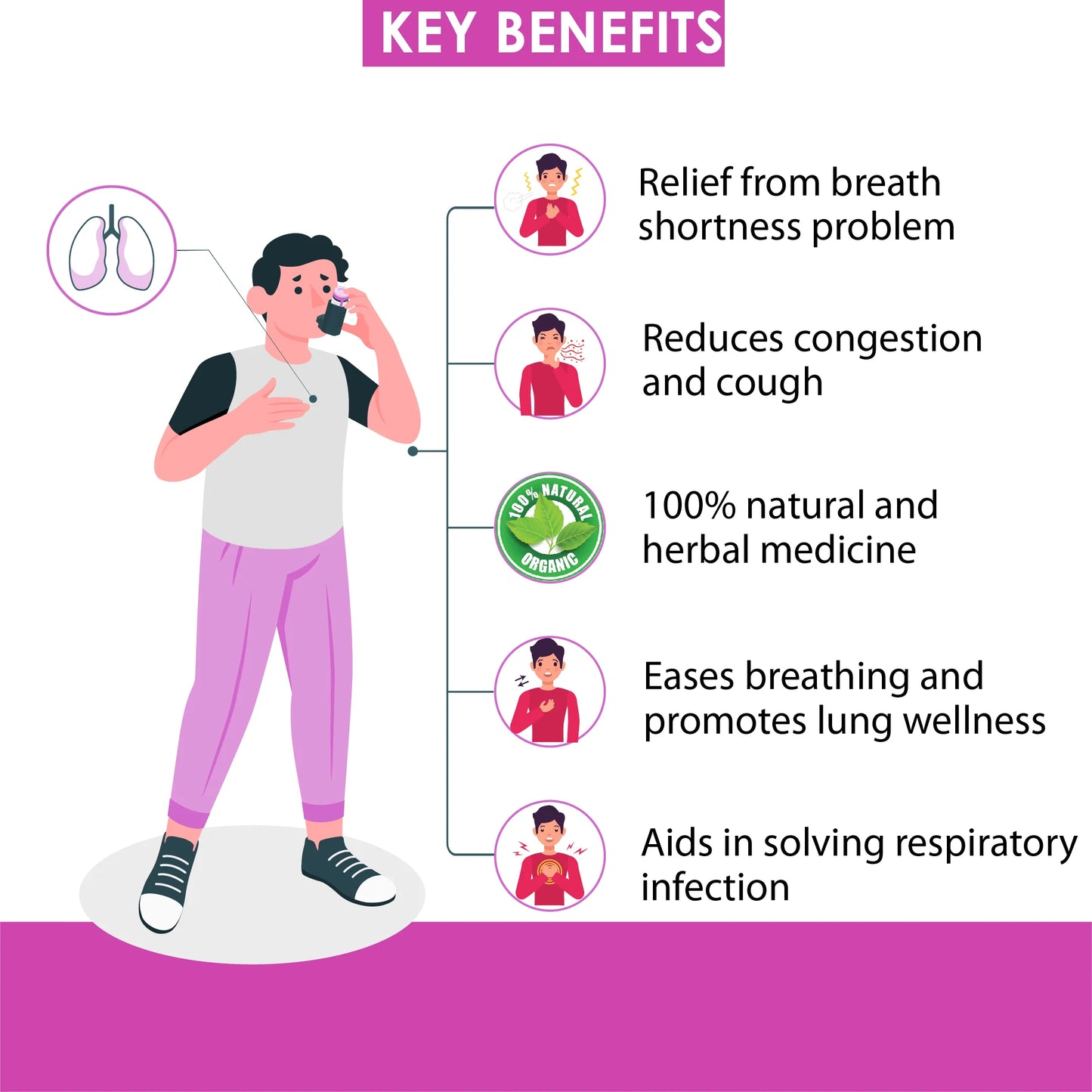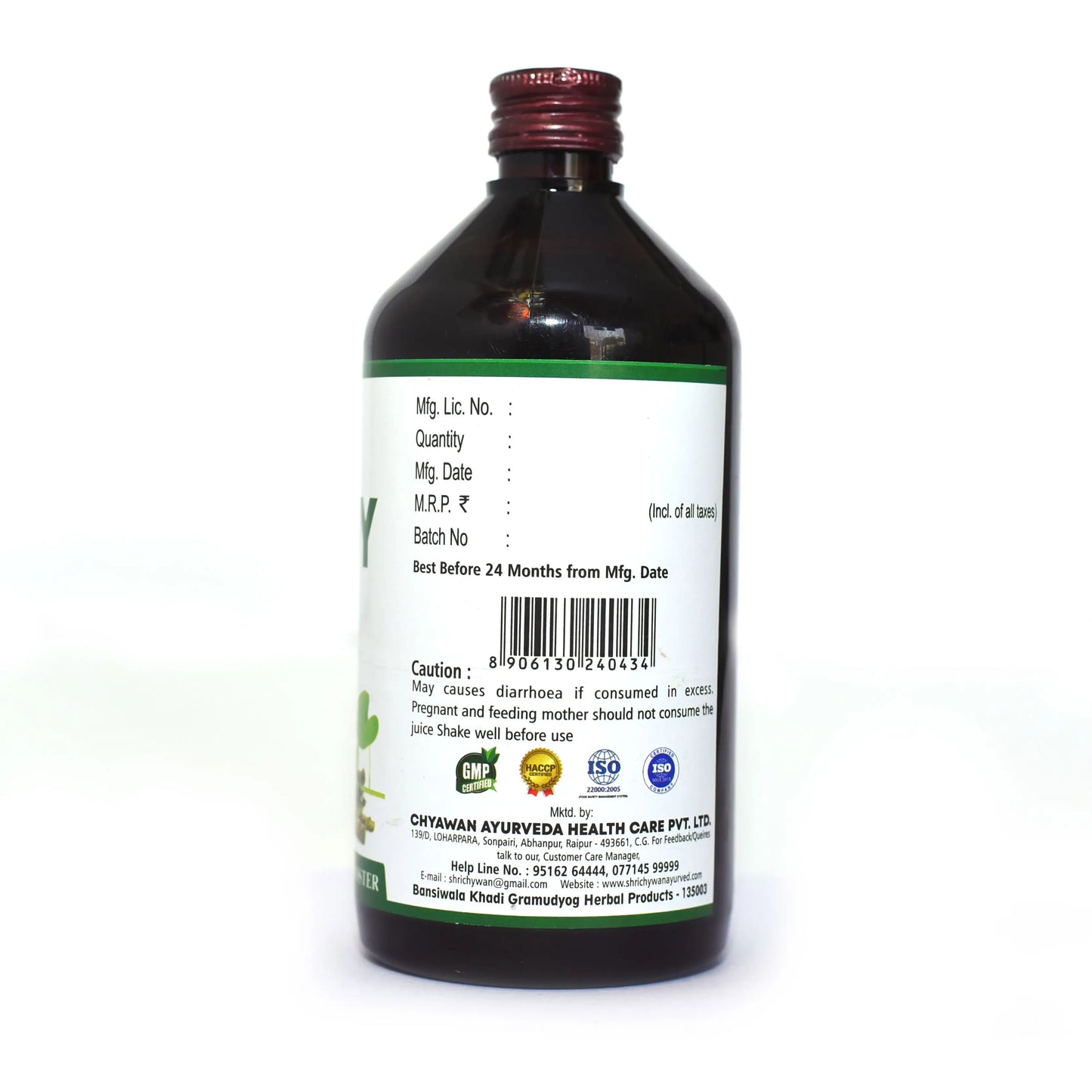Asthma, a condition marked by wheezing, breathlessness, chest tightness, and coughing, can be a frustrating and disruptive force. While conventional medicine offers effective treatments, Ayurveda, the ancient Indian system of holistic healing, provides a unique perspective on its root causes. In Ayurveda, the focus lies on understanding the role of the three doshas – Vata, Pitta, and Kapha—in the development of asthma.
The Three Doshas: A Symphony of Balance
Imagine your body as an orchestra, where Vata, Pitta, and Kapha are the lead conductors. Vata, composed of air and space elements, governs movement, circulation, and communication. Pitta, embodying fire and water, regulates metabolism, digestion, and transformation. Kapha, a combination of water and earth, controls structure, lubrication, and growth.
In a state of balance, these doshas create a harmonious symphony within your body. However, an imbalance in any dosha can lead to health concerns. Let's delve into how each dosha can influence asthma:
-
Vata Dosha: When Vata is aggravated, it can lead to dry coughs, wheezing, and a feeling of anxiety during an attack. This Vata-induced asthma is often triggered by cold, dry weather, emotional stress, or excessive travel.
-
Pitta Dosha: An imbalance in Pitta can manifest as burning sensations in the chest, yellow or green mucus production, and asthma attacks triggered by allergens, pollution, or spicy foods.
-
Kapha Dosha: Kapha imbalances are characterized by excessive mucus production, a feeling of chest congestion, and a productive cough. This Kapha-related asthma is often worsened by cold, damp weather, dairy products, and emotional stagnation.
The Ayurvedic Approach to Asthma Management
Ayurveda doesn't focus on a one-size-fits-all approach. Instead, it emphasizes personalized treatment based on your dominant dosha and the specific triggers of your asthma. Here's a glimpse into some potential Ayurvedic interventions:
-
Dietary Modifications: Each dosha benefits from specific dietary choices. For example, a Vata-dominant individual might focus on warm, grounding foods like soups and stews, while a Pitta-influenced asthma might require a cooling and anti-inflammatory diet.
-
Herbal Remedies: Ayurveda boasts a rich pharmacopoeia of herbs specifically targeted towards respiratory health. Vasa (Adhatoda Vasica) is a popular herb known for its bronchodilatory and expectorant properties, beneficial for Kapha-related asthma.
-
Lifestyle Practices: Pranayama, yogic breathing techniques, can be highly effective in managing asthma symptoms. Specific breathing exercises can help regulate Vata and promote better lung function. Additionally, stress management techniques like meditation can be crucial, as stress can exacerbate any doshic imbalance.
The Power of Self-Awareness
Understanding your dominant dosha and its role in your asthma empowers you to take charge of your health. By making conscious choices about your diet, lifestyle, and stress management, you can create a foundation for optimal respiratory health. Remember, Ayurveda is a journey of self-discovery and holistic healing.
A Note of Caution
While Ayurveda offers valuable insights, it's important to consult with a qualified Ayurvedic practitioner for personalized diagnosis and treatment plans. They can guide you on the appropriate Ayurvedic interventions alongside any conventional medical treatments you might be receiving.
Unveiling the Mystery, One Breath at a Time
By integrating the wisdom of Ayurveda with conventional medicine, you can embark on a powerful path to managing your asthma. As you gain a deeper understanding of your unique doshic constitution, you can transform your breathing experience, one mindful breath at a time.
FAQ:
1. What is the Ayurvedic perspective on asthma?
Ayurveda views asthma as an imbalance in the three doshas - Vata, Pitta, and Kapha. Each dosha imbalance can manifest in different asthma symptoms and be triggered by various factors.
2. How can I identify my dominant dosha and its role in my asthma?
Consulting a qualified Ayurvedic practitioner is ideal. They can assess your individual health and provide a personalized diagnosis based on your doshic constitution.
3. What are some Ayurvedic interventions for asthma management?
Ayurveda offers a holistic approach that may include:
- Dietary modifications: Tailored diets based on your dosha to promote balance.
- Herbal remedies: Specific herbs like Vasa (Adhatoda Vasica) can help manage symptoms depending on your dosha.
- Lifestyle practices: Pranayama (yogic breathing) and stress management techniques can improve lung function and overall well-being.
4. Can you recommend Shri Chyawan Ayurveda's Asthma Care Kit?
Disclaimer: While I cannot endorse any specific product, Shri Chyawan Ayurveda's Asthma Care Kit is one option available. It's important to consult with a qualified Ayurvedic healthcare professional before starting any new treatment plan. They can advise on the most suitable herbs or formulations for your unique needs.
5. How can Ayurveda complement conventional medicine for asthma?
Ayurvedic practices can work alongside conventional medical treatments to manage asthma symptoms and promote overall well-being. However, consulting with both a qualified Ayurvedic practitioner and a medical doctor is essential to ensure a safe and effective approach.
6. What are the benefits of understanding Ayurveda for asthma management?
Understanding your doshic constitution empowers you to make informed choices about your diet, lifestyle, and stress management. This self-awareness can be a powerful tool in your journey towards optimal respiratory health.
Remember: This information is not a substitute for professional medical advice. Always consult with a qualified healthcare professional for diagnosis and treatment of asthma.

